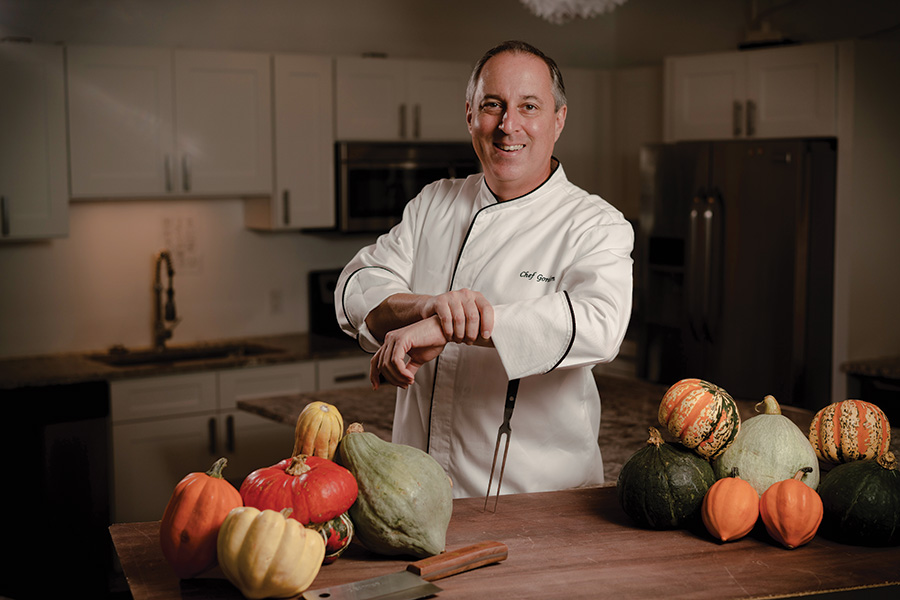Paychecks shrank or disappeared altogether for cooks, servers and bartenders. Work hours for hospital staff evaporated. In a matter of a week, many in the service industry were introduced to an unforeseen crisis: food insecurity. “Things got bad really quickly,” says Gordon Lippe, chef and owner of commissary kitchen Your Culinary Place. Even as he mourned the sudden quiet of his once bustling facility, he set about to find a solution for his colleagues and community.
First, he turned the entrance to his facility into an airtight, medical-grade delousing foyer, with a disinfectant-soaked welcome mat, a hand-washing station, an air purification system, a touch-free thermometer, remote keyless entry, and enough rubber and latex gloves for each entrant to double-wrap their hands. “I was also cleaning the entire space two or three times a day,” he says. It seems excessive, but for what he had in mind, safety and cleanliness would be central. “I sent an email to José Andrés of World Central Kitchen and started scrambling to put a nonprofit organization together,” he says.
World Central Kitchen, a national nonprofit, provides meals in the wake of natural disasters. Lippe wanted to do the same for the Sarasota area, so he applied for his nonprofit status with the IRS and began tapping into his vast network of food-industry reps for donations. “Surprisingly, not a single one of the big suppliers wanted to help,” says Lippe. “It was actually local suppliers that came through for us.” Big Apple Market and Sarasota Seafood Company chipped in immediately with big crates of produce and fish packed in ice. And Lippe did what chefs do: He made magic with what was available. The produce, fish and other food donations became prepared meals for unsung frontline workers.
“Who was feeding grocery store employees or overnight janitors at the hospitals? If these people weren’t showing up to work, we’d be in a lot of trouble,” he says. Word of his food program spread quickly, with television appearances and social media shares translating into donations of both food and money, all in the first two weeks of his call to action. By the time Lippe heard back from Chef Andrés and the IRS, he had already established Your Culinary Place as a fully functioning nonprofit organization operating under the name Chefs Feeding Florida.
Under the World Central Kitchen model Lippe adopted, a sliding scale for meals capped them at $10. Soups and salads were available daily for $3 and $2, respectively, and those fortunate enough to be able to pay full price started tacking on donations on top of their food orders. “It was $50 here, $100 there,” says Lippe, “until finally I was able to hire some out-of-work chefs and cooks to come help out.” Once production ramped up, Lippe and his crew cranked out 75 to 100 meals a day and broke even with sales and donations.
Those donations continue to subsidize free or reduced-cost meals for anyone in need. “As the richest country on the planet, we should never have someone go hungry because of a disaster,” says Lippe. “And with all the uncertainty of not having an income, not being able to pay bills; a hot meal is a lifeline, it’s a chance to just sit down and breathe and enjoy some food.” SRQ









